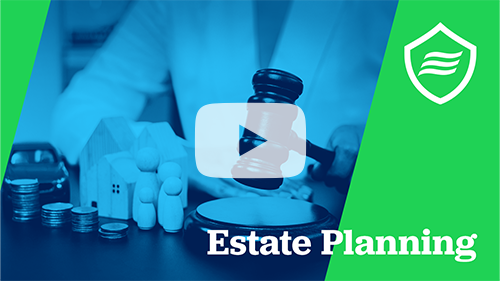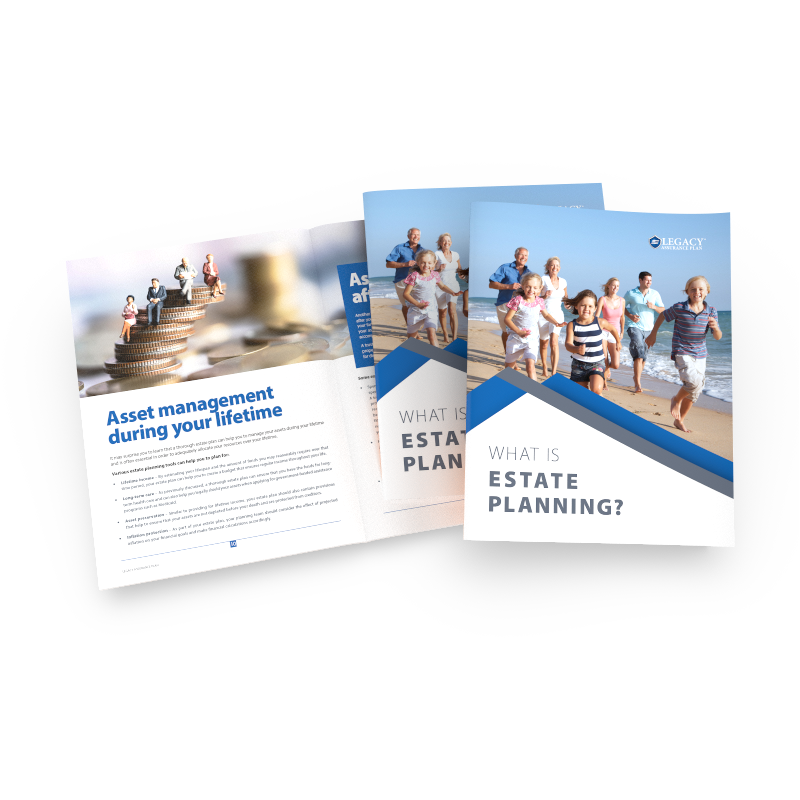ESTATE PLANNING
What is Estate Planning?
Think of it as writing instructions that protect everything you've worked for and everyone you care about

Estate planning is more than just deciding who gets what after you're gone. It's about creating a clear roadmap for your family's future. Just as you plan for life's important moments, estate planning helps you prepare for both expected and unexpected events that could affect your family.
When people hear "estate planning," they often think it's only for the wealthy or elderly. However, estate planning is for anyone who wants to protect their loved ones and ensure their wishes are followed. Whether you're a young parent wanting to secure your children's future, a business owner looking to protect your life's work or simply someone who wants to make things easier for your family during difficult times, estate planning provides the framework to achieve these goals.
Your estate plan becomes your voice when you can't speak for yourself, ensuring your family knows exactly what you want and helping them avoid unnecessary stress, confusion and conflict.
Key aspects of estate planning include:
- Protection of assets and loved ones
- Clear instructions for health care decisions
- Guardianship arrangements for children
- Distribution of property according to your wishes
- Avoid probate's expense, delays, lack of control and loss of privacy
- Prevent unwanted guardianships and loss freedom
Estate planning matters because life is unpredictable. Even with careful planning in other areas of life, overlooking estate planning can leave your family vulnerable to legal complications, unnecessary taxes and difficult decisions during emotional times. It provides a safety net that protects your loved ones when they need it most.
Having an estate plan means giving your family the gift of clarity and security. It ensures they won't have to guess about your wishes or face unnecessary legal hurdles during an already challenging time.
Essential reasons for estate planning:
- Protects your family from legal complications
- Ensures your wishes are legally documented
- Provides for loved ones according to your intentions

Basic estate planning elements
Estate planning works like a well-designed blueprint for your family's future. Each component serves a specific purpose, working together to create a complete protection plan. The foundation starts with basic documents that address different aspects of your life and wishes, from financial decisions to health care choices.
Think of these documents as the building blocks of your family's security, each playing a vital role in protecting your wishes and your loved ones' interests.
Core estate planning documents include:
- A last will and testament for asset distribution and guardian designation
- A revocable living trust for privacy and probate avoidance
- Powers of attorney for financial and medical decisions
When to start estate planning
Many people put off estate planning, thinking they'll get to it "someday." The truth is, the best time to start estate planning is now, while you can make clear decisions and communicate your wishes. Life events like marriage, having children or buying a home often trigger people to start planning, but you don't need to wait for a major life change to begin protecting your family's future.
Starting early gives you the advantage of being able to make thoughtful decisions without pressure, and you can always update your plan as your life circumstances change.
Frequently Asked Questions
Q: What happens if I don't have an estate plan?
Without an estate plan, state intestacy laws determine who receives your assets and makes decisions about your care, which may not align with your wishes. This can lead to family conflicts and unnecessary legal expenses.
Q: How often should I update my estate plan?
Review your estate plan every few years and after major life events like marriage, divorce, births or significant changes in assets.
Q: Is estate planning expensive?
Basic estate planning is more affordable than many people think, especially compared to the potential costs and complications your family might face without a plan in place.
Taking the first step
Creating an estate plan doesn't have to be overwhelming. Start by thinking about your goals and what matters most to you. Consider what you want for your loved ones and how you can best protect them. Remember, estate planning is an act of care for your family. It's about making things easier for them during difficult times and ensuring your wishes are honored. Don't wait for the perfect time take the first step today to protect what matters most.









